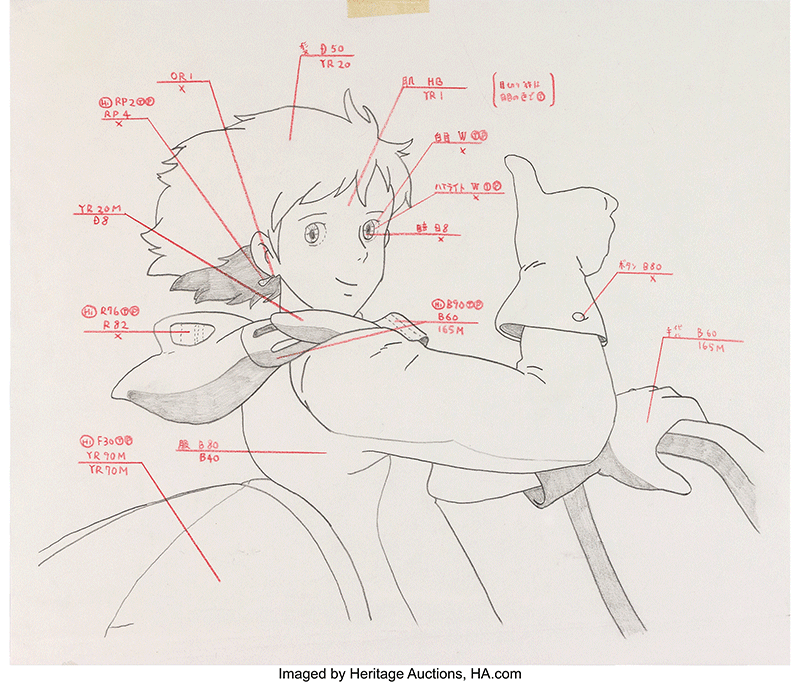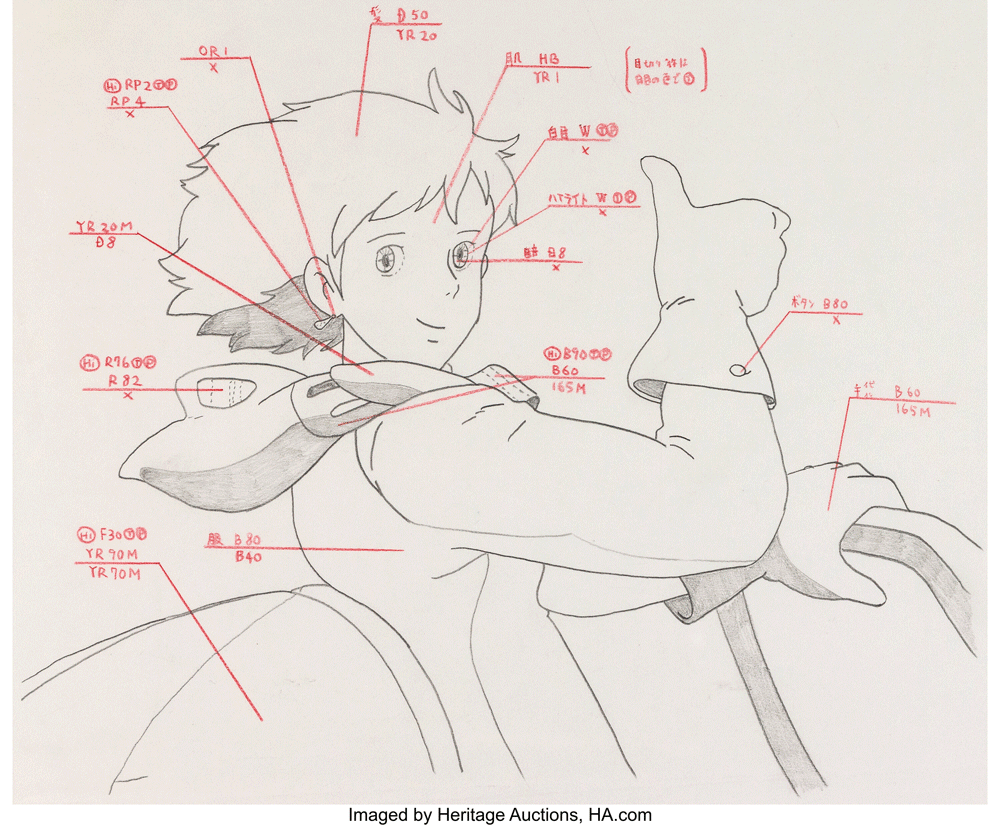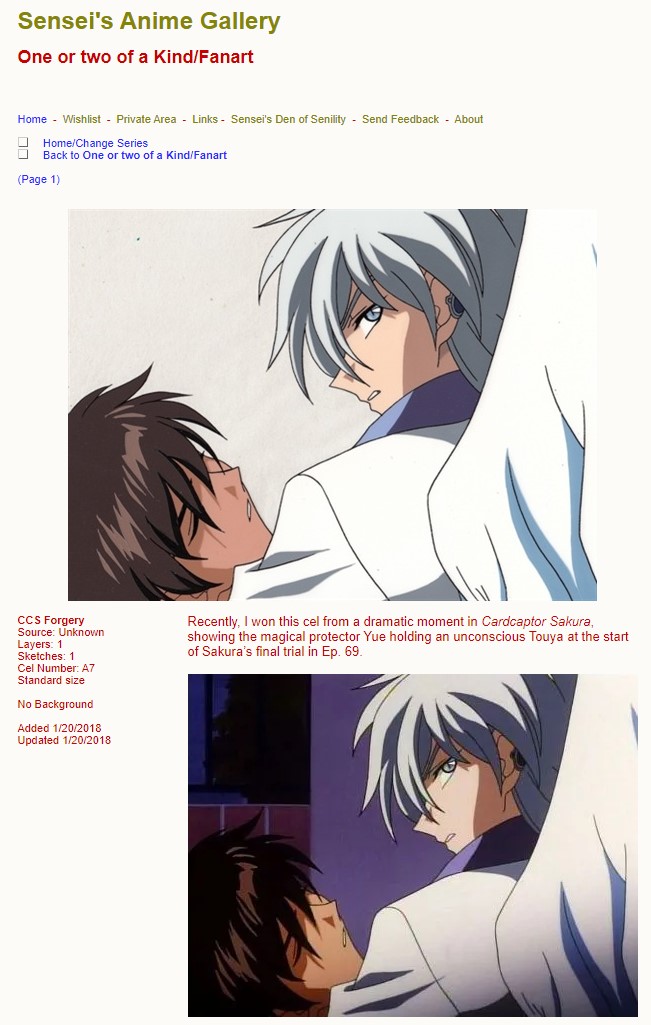How to Spot a Fake
[This page is a work in progress]
To help demonstrate how to check if a cel or sketch is fake we will examine a few examples of fake animation artwork in detail below.
Exhibit 1: A fake Nausicaä sketch
Here is douga which claims to be from Nausicaä of the Valley of the Wind. Ghibli artwork is highly sought after and fetches high prices so it's a prime target for counterfeits. One of the easiest way to confirm if the art is fake is to take a screenshot of the matching scene and overlay it over the cel/sketch and do what some call the "flicker test" by turning the layers on and off quickly to check for inconsistencies.
Even before doing the flicker test there are a few red flags about this douga.
1. it is the wrong dimensions
2. there are no peg holes
3. the shading indicating shadows is done in graphite here but is usually done with colored pencils
4. there are paint colors marked in red pencil all over the sketch. You can see paint colors marked on douga occasionally but I've never seen it done on Ghibli art. The amount of paint indicators is more reminiscent of DIY cel painting kit instructions.
5. overall the pencil line quality is quite wobbly and not indicative of an experienced artist's hand
I was able to find an image of the actual cel from the scene as well so I applied the flicker test here using the cel this time to do the comparison.
In both cases there are several areas where the douga does not match the screencap or the cel. I have drawn in red several places where the sketch does not match the references in the video below.
The examples shown above have fairly obvious mistakes that make them easy to spot. If you want a look at a very sophisticated fake please visit Sensei's Cel Gallery where he goes into great depth into how he discovered one of his Card Captor Sakura cel/dougas is a forgery. http://sensei.rubberslug.com/gallery/inv_info.asp?ItemID=415988
Disclaimer: If you own any of these images and want them removed please contact us.




No comments to display
No comments to display